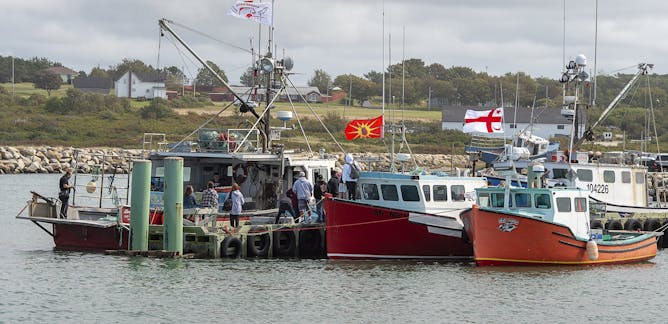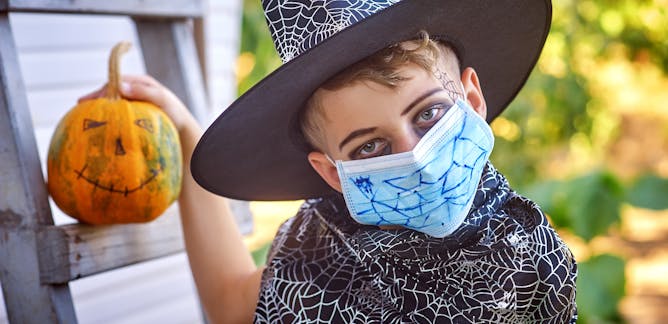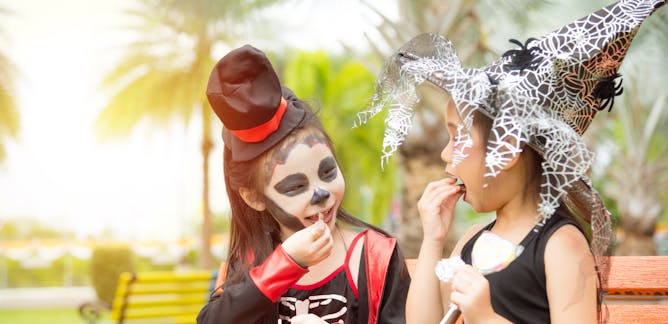|
I ventured into our Toronto office this week – one of the few times I’ve done that since the beginning of the pandemic. The office is in the downtown core, but of course there are no crowded streets or busy sidewalks in Canada’s largest city these days. On my way to the office, I drove by the main campus of the University of Toronto. The buildings and playing fields looked lonely. I know the feeling. There are so many things about working during a pandemic that are difficult. The team at The Conversation Canada has it relatively easy because our technology means remote work is mostly effortless. But one of the things I find most challenging is not seeing my colleagues in person. We hold virtual news meetings where the necessary busines gets done, but somehow, it’s not quite the same. People don’t linger in video meetings. Casual conversation isn’t as easy. You laugh less. So, on
those rare occasions when virtual meetings feel like real meetings, it can be exciting. That happened at one of our news meetings this week. We were talking about a great story we’d just published by Megan Bailey of Dalhousie University. Prof. Bailey is a Canada Research Chair on Integrated Ocean and Coastal Governance and she wrote a timely article about the dispute between Indigenous and non-Indigenous commercial fishermen in Nova Scotia. Her article provided a research-based analysis on the Sipekne'katik First Nation fishery. “As a researcher with expertise in fisheries science, fisheries economics and marine policy, I see no evidence the
fishery will harm lobster stocks,” she wrote. “Conservation is not at the heart of the ongoing dispute.” One of my colleagues called it “the perfect Conversation story” because the combination of academic expertise in the form of a journalistic article really fulfils our stated mission: share knowledge and inform decisions. Inspired by those words, I’ve put together a few of my favourite “perfect” Conversation stories from the last week – articles where the academic expertise helps put timely issues into sharper focus. And for fun, I’ve thrown in some excellent stories about how to deal with Halloween during the pandemic (including one from our archives on avoiding a sugar disaster).
Have a great weekend and we’ll be back in your Inbox on Monday.
|
Share Knowledge, Inform Decisions
|

Megan Bailey, Dalhousie University
The message from commercial fishers is that fishing in St. Marys Bay outside the commercial season is illegal and a conservation concern. In fact, it is neither.
| |

Patrick Stewart, University of Arkansas
From laughter to funneled lips, the presidential candidates at their last debate signaled via expressions and non-verbal responses what they were feeling.
|

Victoria Wagner, Université de Montréal; Christopher Fernandez-Prada, Université de Montréal; Martin Olivier, McGill University
Importing dogs into Canada has also introduced a flesh-eating parasite that is transmissible to humans. Veterinarians, researchers and public health officials should work together to curtail the disease.
| |

Julia Creet, York University, Canada
Christine Jessop was murdered in 1984 and, 36 years later, DNA evidence finally identified her killer. But the police investigation's use of genetic genealogical databases raised questions about privacy.
|

Sheri Madigan, University of Calgary; Craig Jenne, University of Calgary; Rachel Eirich, University of Calgary
Experts in child development and infectious disease help parents make informed decisions about Halloween and provide tips for communicating with children effectively.
| |

Lorna Piatti-Farnell, Auckland University of Technology
You can still enjoy some of the fun of Halloween celebrations this year, and stay safe. It helps to look back at the origins of some of the spooky traditions.
|

Pamela M. Aaltonen, Purdue University; Meg Sorg, Purdue University
There are plenty of ways to enjoy the holiday without trick-or-treating, but you still need to make sure you are socially distancing and wearing a mask – and not just one for Halloween.
| |

Jess Haines, University of Guelph
Halloween is upon us, and the sugar is horrible for your kids' teeth and health. But fear not -- there are things parents can do to lessen the impact of the candy binge.
|
|
|